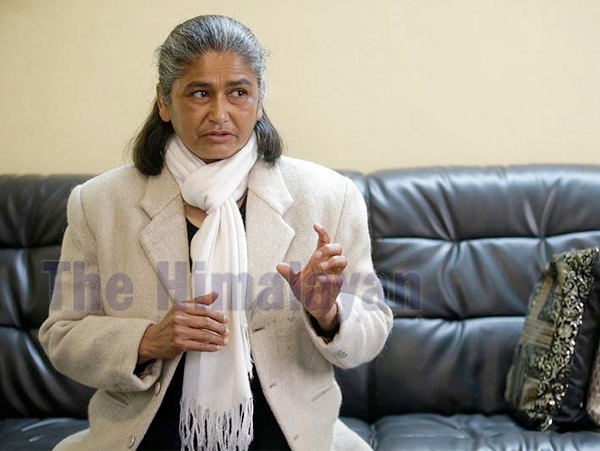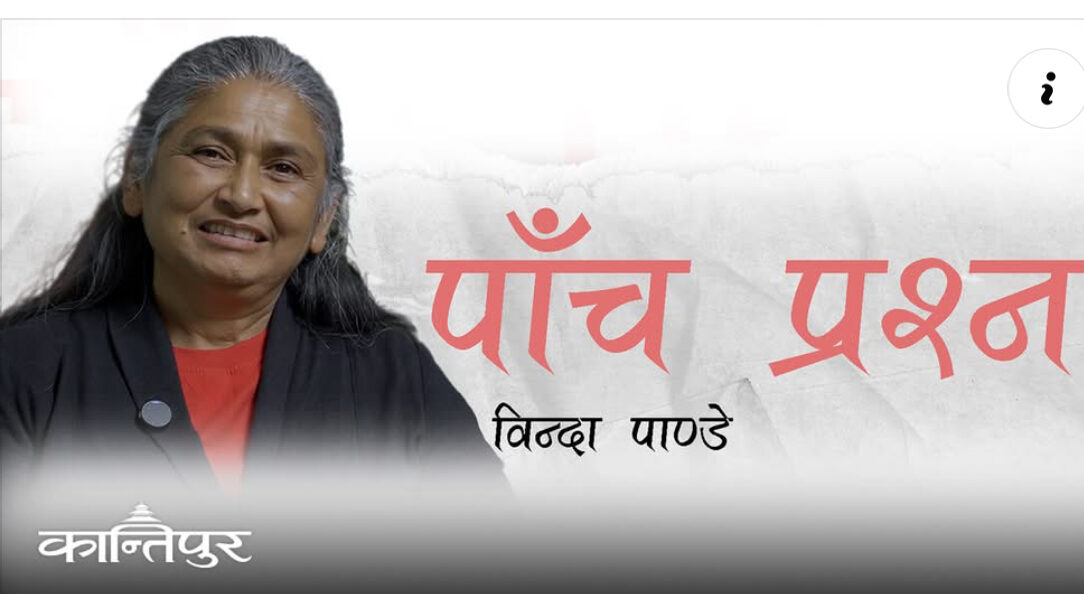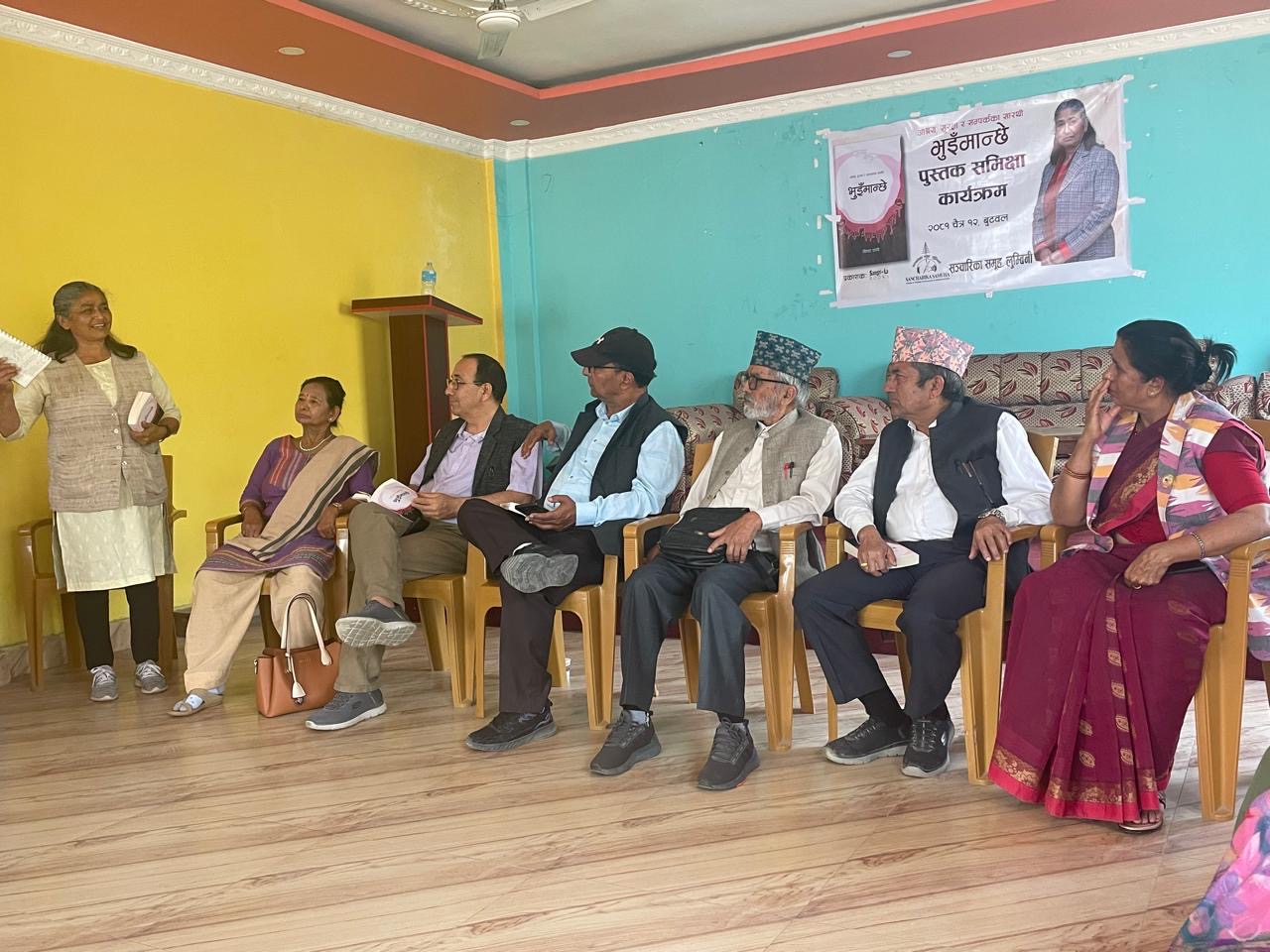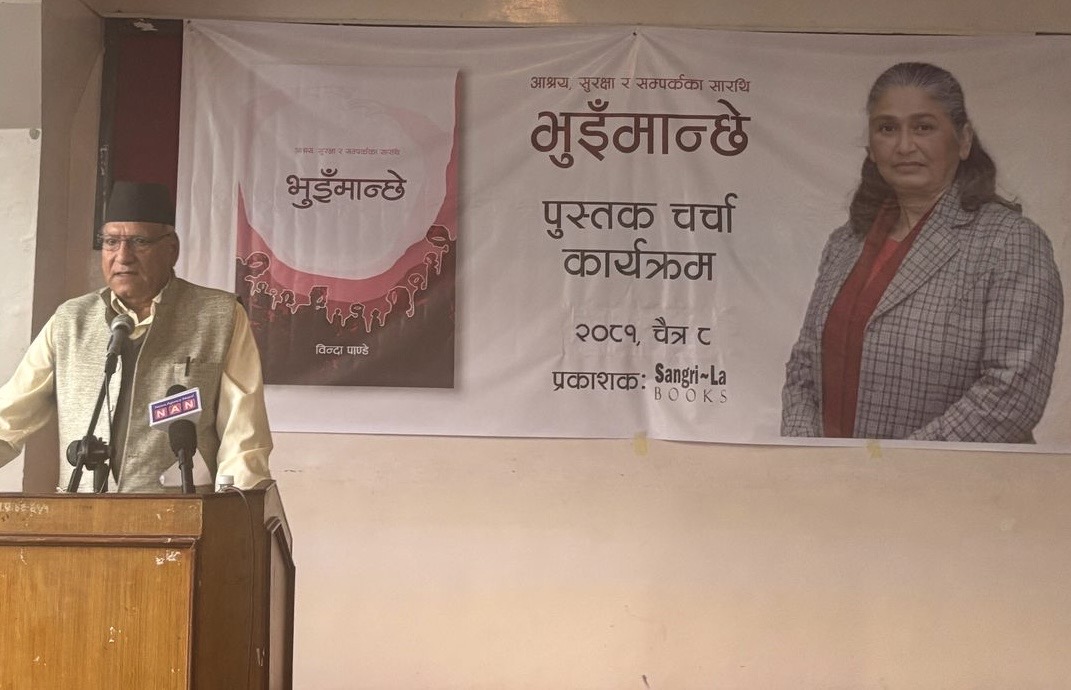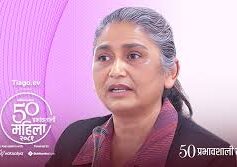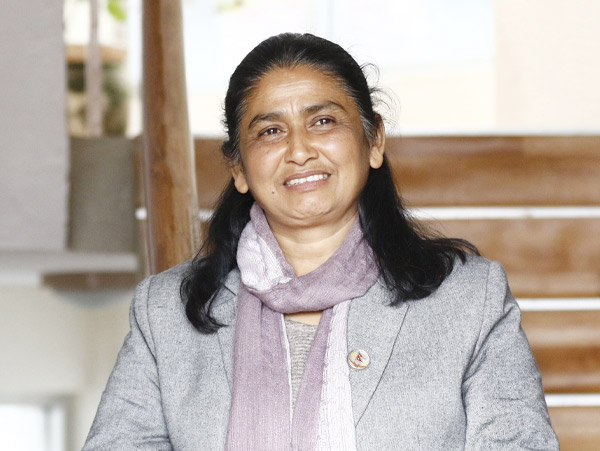
Monday, 16 April 2007, 11:45 am
International Trade Union Confederation (ITUC)
Spotlight interview with Binda Pandey, Deputy general secretary of GEFONT (General Federation of Nepalese Trade Unions)
“International solidarity played a crucial role in the return to democracy in Nepal“
Brussels, 11 April 2007 (ITUC online): A year ago, the Nepalese unions were contributing to restoring democracy in the country, with a strike that forced the King to return power to the people. Binda Pandey, Deputy general secretary of GEFONT (General Federation of Nepalese Trade Unions), talks about how the situation has evolved in Nepal since then. She also comments on GEFONT’s efforts to organise the INFORMAL economy and to increase women’s representation in trade union decision-making structures.
How does the political situation now stand in Nepal?
One year back we were on the street, fighting a life-n-death struggle. Today we are evaluating the situation.The return to democracy in April 2006 raised great hopes among the Nepalese people. Everyone is hoping for a lasting peace, but there are still some thorny issues to resolve, like the fate of the monarchy. Most Nepalese people would rather have a Republic, but there is still a political debate over this issue; even the Prime Minister is hesitant to speak clearly. Parliament has been meeting for a year now, and has managed to introduce some very important changes, such as abolishing discriminatory laws, setting out a new interim constitution and curtailing royal powers. The King used to be a Member of Parliament, but this is no longer the case. He also used to head the army and the State, but the Prime Minister now holds this post. It was essential that the army be separated from the monarchy. National elections are due to take place in June for a Constituent Assembly, which will be in charge of drawing up a new Constitution. This will very probably overthrow the king and Nepal will turn into a republic, really entering into a new Nepal. .
The parliament had already declared Nepal as a secular state. Women have achieved more rights such as equal right to inherit property, one-third female participation in all state mechanisms, citizenship rights for children who bear their mother’s name, reproductive rights, etc. In fact, womens’ constitutional rights are amongst the best in South Asia, but we are still waiting for these to be put into practice.
Is this vision of the King’s role shared by the whole political class? Yes, almost. I say almost because, among the political movements, there is a faction which would like to see the complete abolition of the monarchy and the establishment of a Republic, this faction constitutes a majority in the interim parliament now.
Are they likely to achieve this?
At the moment, the Maoists have given up the armed struggle and have ministers in the new government, formed at the end of March 2007, which is in charge of the day-to-day running of the country until the elections in June. The Maoists will also take part in these elections. I suppose the degree of success the left forces have in these elections will determine the weight carried by their position on the status of the monarchy and other issues in the future Parliament.
What role did the trade unions play in the struggle to restore democracy?
In April 2006, an alliance of seven political parties decided to hold a four-day general strike, from 6 to 10 April. They asked the unions to support the strike. We agreed, but on the condition that the strike would not be called off until democracy had been restored. The political parties agreed to this and the workers, including ministerial staff, took to the streets. The strike lasted 19 days, and 21 demonstrators (one-third of them workers, two of whom were women) lost their lives, shot or beaten to death by the police. The strike led to a return to democracy, because practically all the workers in the country joined forces.
Did international workers’ solidarity contribute to this positive outcome?
International solidarity played a crucial role. The former ICFTU and WCL wrote letters of protest to the King of Nepal following the dissolution of the government on Feb. 1, 2005 and the king’s assumption of absolute power. It was the first time that international organisations wrote such a strong protest letter directly to the King. The Global Union Federations also applied pressure, sending protest letters to the King and solidarity letters to democratic movements, especially the trade unions. Numerous national unions from over the world did the same. It was a very important source of moral support for the Nepalese. We passed these letters on to other democratic organisations, such as the political parties and the press as well. They were very impressed with this outside support; it was a great source of encouragement for us in our struggle.
Are Nepalese workers able to exercise their trade union rights now that democracy has been restored?
We are able to exercise our trade union rights, but the government has not yet ratified ILO Convention 87 on freedom of association. We are fighting for this, and the government has committed to ratifying it, although it hasn’t done so yet. We are also under a great deal of international pressure to make our labour market more flexible and to change our labour legislation. As unions, we are not totally opposed to such changes in the labour market, but they must be offset by better social security, which is very limited at the moment. We could envisage making the labour market more flexible if all workers were covered by social security. Comprehensive social security coverage could be financed by tripartite contributions. The informal economy should also be covered, which means identifying those working in this economy.
How many members does GEFONT have at the moment?
We have over 304,000 members, 17% of whom are women. Around half of our members are under 35. We cover the formal and informal economies: mainly tourism and factory workers in the formal economy, and trades such as construction, transport, agriculture and street vending in the informal economy. We have also recently started to organise security guards, and domestic workers, through a new union. What services do you offer informal economy workers to encourage them to join a union?
Apart from our general campaign for the extension of social security benefits to all informal economy workers, we have also implemented sector-based projects. We are currently focusing on the agricultural sector, where the workforce is among the most exploited. We are trying to obtain a minimum wage in the sector, at least. We have also started to work on setting up micro health insurance schemes. In exchange for the payment of an affiliation fee, our members have access to a vehicle that can take them to hospital, where they obtain discounts of up to 75% with the help of GEFONT. It’s only a start; we haven’t been able to reach the bulk of agricultural workers yet.
A lot of our federations are also managing credit and saving schemes for informal economy workers. We have also set up an insurance scheme in the transport sector, as there are many accidents in Nepal. In exchange for the payment of a daily contribution of 10 rupees (EUR 0.10) for small vehicles and 20 to 25 rupees for buses, GEFONT manages a fund that covers all costs in case of an accident.
How did you get involved in the trade union movement?
Nepalese workers are faced with a great deal of oppression, and being a woman worker is even more difficult in this context. Until 1990, I was a student activist, then I joined the women’s movement, and was placed in charge of the activities concerning women workers. I realised it was an area where I could make a contribution. I started to work for the trade union movement in 1992, as the secretary of the women’s department, and then became the head of the education department, before going on to become the Deputy General Secretary. It gives me great satisfaction to work for the least advantaged workers, but it isn’t easy to be a female activist in a society that is still very patriarchal and feudal, like Nepal. We constantly have to try and convince our male colleagues of the need to fight for gender equality. Having said that, although being a female activist in South Asia can be frustrating at times, I have the fortune of occupying a post that gives me exposure to international contacts. I also have very strong relations with the local unions, and this contact with the reality on the ground gives me the strength to keep up the fight to improve the lot of workers, and particularly women workers.
What are your views on quotas for the participation of women in trade union decision-making structures and meetings?
They are, without a doubt, very useful in developing countries, where it is very difficult for a woman trade union leader to gain acceptance. Although the delegations attending international trade union congresses are more mixed than in the past, it’s still rare to see a woman getting up and speaking, because there are still too few of them in the posts of general secretary and chairperson. I’m convinced that it would be even more difficult without quotas for women (and young people), which is why this system has to be maintained, and even strengthened, for some years to come. The ITUC Constitution demands at least 30% female participation in trade union delegations and meetings, but women represent 40% of the ITUC’s membership. So why not demand 40% female representation in delegations and meetings?
Source: Scoop World

